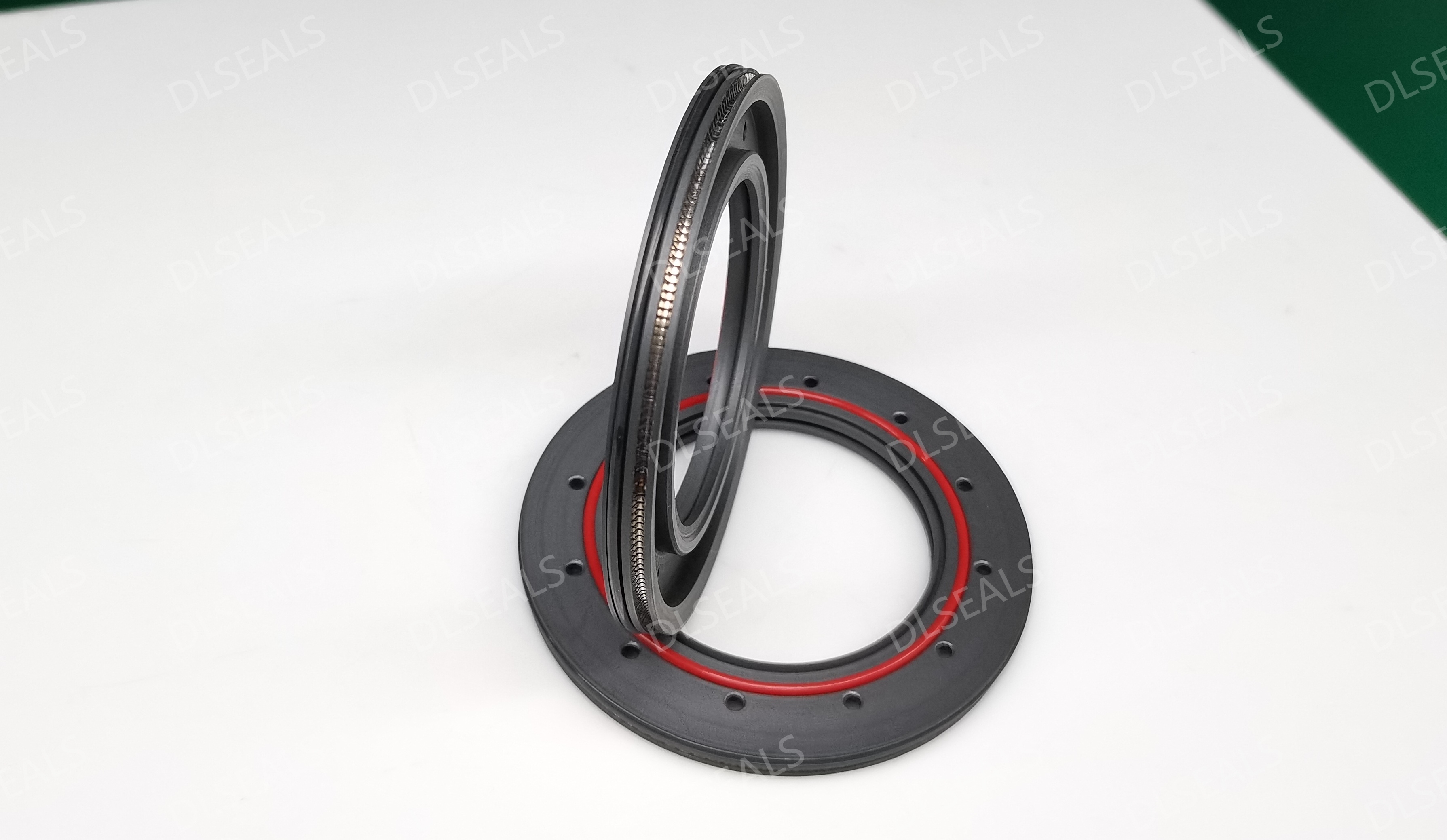News
A2024-10-16

PTFE oil seal (polytetrafluoroethylene oil seal) is a high-performance seal widely used in modern industry. This article will introduce the basic knowledge of PTFE oil seal, including material properties, structure and working principle, performance advantages and application fields.
1. Material properties
1. Chemical stability
PTFE oil seal has excellent chemical stability and can resist corrosion from almost all chemicals, including strong acids, strong alkalis and strong oxidants. This enables PTFE oil seals to work in harsh environments.
2. Thermal stability
PTFE oil seals have a wide operating temperature range and can maintain excellent performance at extreme temperatures from -200℃ to +300℃. Its cracking temperature is higher than 400℃ and has good thermal stability.
3. Low friction coefficient
PTFE has an extremely low friction coefficient (only 0.02), which is much lower than traditional rubber materials. Low friction properties help reduce energy loss and extend equipment life.
4. Self-lubricating properties
The surface of PTFE material has excellent self-lubricating properties and hardly adheres to any sticky substances, ensuring smooth operation and greatly reducing wear.
2. Structure and working principle
1. Structural composition
PTFE oil seals are mainly composed of sealing lips, skeletons and guide rings. The lips are made of polytetrafluoroethylene material and are flared. The height is generally between 4-6mm.
2. Working principle
The sealing lips of the oil seal rely on the memory shrinkage ability of the material. When working, they shrink due to friction heat and fit tightly to the surface of the shaft to achieve effective sealing. Its design enables the oil seal to self-adjust and enhance the sealing effect during the rotation of the shaft.
3. Performance advantages
1. Wear resistance
Through modification, the wear resistance of PTFE oil seals can be significantly improved, enhancing its application ability in high-wear environments.
2. High sealing performance
PTFE oil seals can withstand pressures of up to 1.0MPa (single lip) and 3MPa (double lips). The sealing performance far exceeds that of traditional rubber oil seals and is suitable for high-demand sealing applications.
3. Leakage-free
Due to its unique design and material properties, PTFE oil seals can achieve leakage-free operation, which is especially important in demanding industrial applications.
IV. Application Fields
PTFE oil seals are widely used in many industries:
Chemical and pharmaceutical: used in chemical reactors and conveying systems.
Automotive industry: used in engines, transmissions and steering systems.
Aerospace: used in high temperature and high pressure environments.
Food processing: ensure food safety and meet hygiene standards.
Conclusion
PTFE oil seals are an ideal choice for many industrial applications due to their excellent chemical and physical properties. Understanding the basics of PTFE oil seals can help users make more informed decisions when selecting and using them.
[DLSEALS kindly Reminder] Sealing issues? Turn to DLSEALS! As a sealing component manufacturer, we specialize in customizing sealing components, providing a full range of services from design, research and development, production, testing, and more. If you have more information you'd like to know, feel free to contact us directly. DLSEALS's product experts are dedicated to serving you!